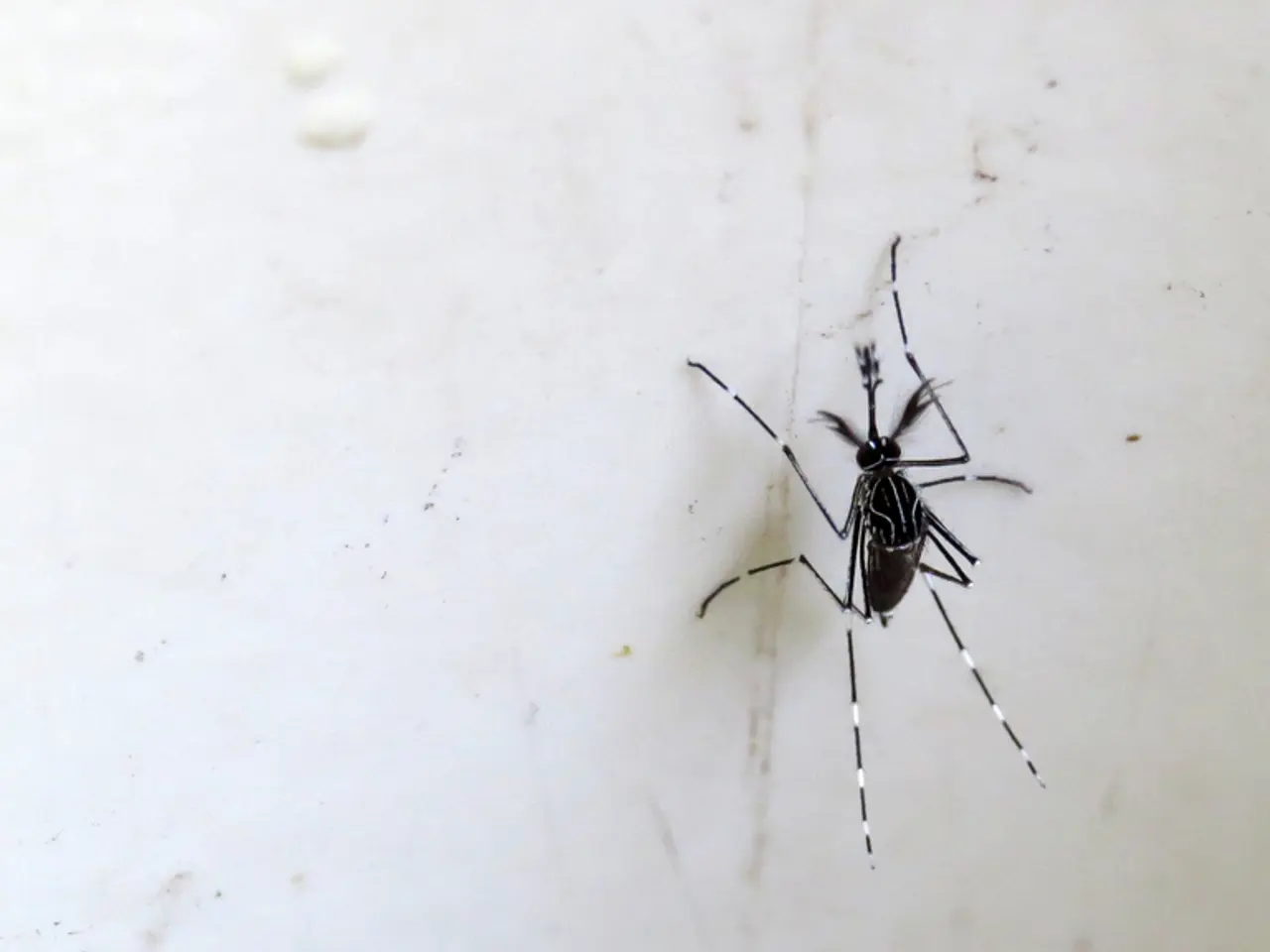Dengue fatalities in Bangladesh surpass 100, August may bring increased danger
Bangladesh is currently grappling with a surge in dengue cases and deaths, with the total number of cases for the year reaching 26,366 as of September's start. This surge is not limited to the capital, Dhaka, as large numbers of infections are being reported from outside the city, putting pressure on rural healthcare facilities with limited capacity to treat severe cases.
Health officials are emphasizing the importance of adopting a comprehensive, multipronged strategy to mitigate the surge during peak season. This strategy includes:
- Vector control: Implementing the “4S” strategy—searching and destroying mosquito breeding sites, practicing self-protection, seeking early medical attention for fever lasting more than 48 hours, and supporting fogging during outbreaks. Regular larvicidal and adult mosquito control using insecticides like deltamethrin and temephos is essential. Both Dhaka North and South City Corporations invest heavily in insecticides and mosquito control drives, but these efforts need updating to counter growing insecticide resistance and a changing climate by using targeted and research-based interventions.
- Surveillance and data integration: Establishing robust hospital-based and national surveillance systems to monitor and respond timely to dengue outbreaks. Incorporating meteorological data is crucial, as climatic factors such as temperature, humidity, wind speed, and precipitation strongly influence dengue incidence in Bangladesh.
- Community engagement and risk communication: Enhancing public awareness through media, leaflets, posters, and community meetings about dengue symptoms, preventive measures, and early healthcare seeking behavior. This includes motivating active participation from communities in vector control activities, especially as dengue is expanding into rural areas via the spread of Aedes albopictus mosquitoes where anti-mosquito campaigns are weaker.
- Improved case management: Equipping healthcare facilities with adequate medical supplies (like intravenous saline and supportive medicines) and training staff for effective dengue patient management to reduce mortality.
- Scientific collaboration and tailored insecticide use: Engaging entomologists and researchers to monitor insecticide resistance patterns and devise adaptive mosquito control plans distinct for different city areas.
- Vaccination: Although not yet widespread in Bangladesh, dengue vaccination could be considered as part of a long-term preventive strategy since it is acknowledged globally as an effective prevention measure.
Combining these approaches, with government prioritization and coordination among city corporations, health authorities, researchers, and communities, will be critical to effectively curb dengue during peak seasons in Bangladesh.
The Aedes mosquito population is thriving due to the warm, humid weather and intermittent rain, exacerbating the dengue outbreak. Experts predict that the number of dengue cases in September could potentially exceed the numbers seen in July and August combined. Nineteen people have died of dengue in August alone, and doctors warn that early medical attention is critical for those experiencing severe abdominal pain, vomiting, bleeding, or extreme fatigue.
Community participation in mosquito control efforts is crucial for preventing what could become one of Bangladesh's worst dengue outbreaks in years. Health experts have stressed that this participation, alongside government-led mosquito control, will be key in managing the ongoing dengue surge. As the peak dengue season is still ahead, it is crucial for people to stay vigilant and take precautions against mosquito bites. Health officials continue to urge people to use mosquito repellents, sleep under nets, and eliminate stagnant water where mosquitoes breed.
Read also:
- Fifth-generation family member, Anandamayi Bajaj, makes history by becoming the first female leader to join the Bajaj Group, following in the footsteps of her lineage's patriarch, Shri Jamnalal Bajaj.
- Proposal sought for a directive on shielding workers from potential ionizing radiation hazards, as per Commission's request.
- Eastwood's 90/10 principle for enduring success span
- Childhood Bone Cancer: Crucial Facts to Understand




